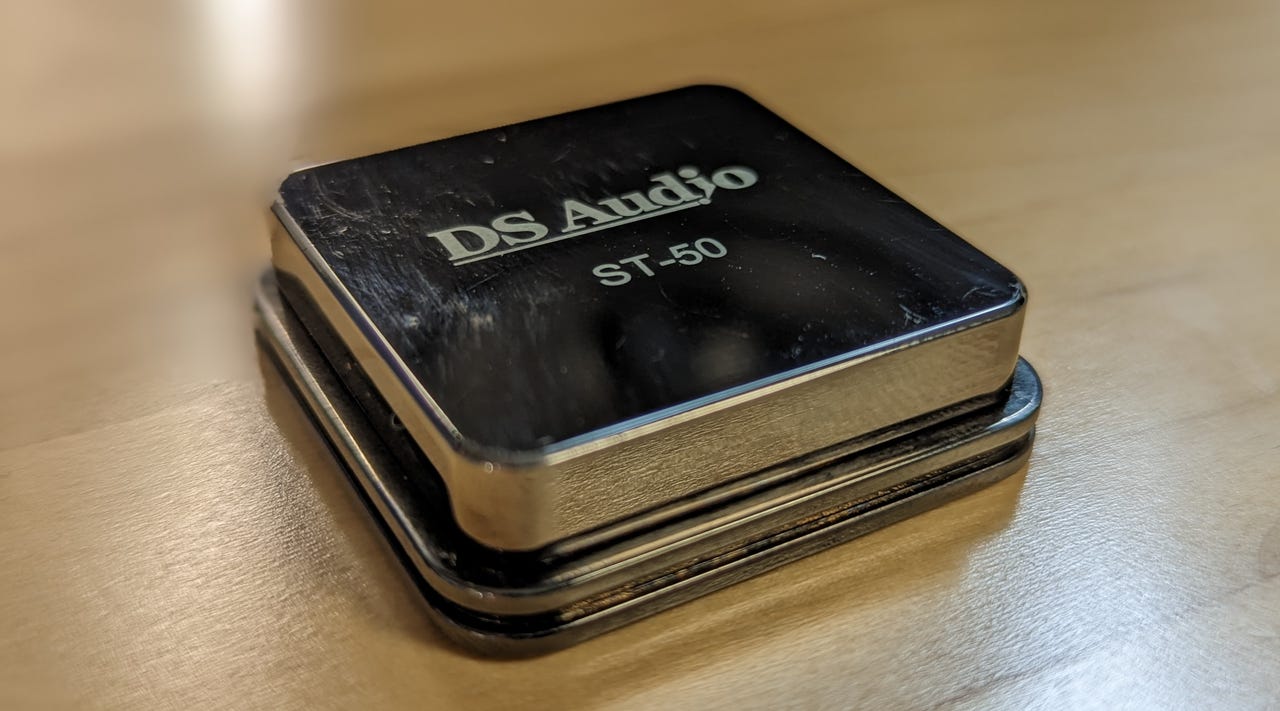'ZDNET Recommends': What exactly does it mean?
ZDNET's recommendations are based on many hours of testing, research, and comparison shopping. We gather data from the best available sources, including vendor and retailer listings as well as other relevant and independent reviews sites. And we pore over customer reviews to find out what matters to real people who already own and use the products and services we’re assessing.
When you click through from our site to a retailer and buy a product or service, we may earn affiliate commissions. This helps support our work, but does not affect what we cover or how, and it does not affect the price you pay. Neither ZDNET nor the author are compensated for these independent reviews. Indeed, we follow strict guidelines that ensure our editorial content is never influenced by advertisers.
ZDNET's editorial team writes on behalf of you, our reader. Our goal is to deliver the most accurate information and the most knowledgeable advice possible in order to help you make smarter buying decisions on tech gear and a wide array of products and services. Our editors thoroughly review and fact-check every article to ensure that our content meets the highest standards. If we have made an error or published misleading information, we will correct or clarify the article. If you see inaccuracies in our content, please report the mistake via this form.
Love listening to records? This simple, sound-enhancing gadget is a must-have

The DT-50 case does a great job of protecting the gel pad within.
I'm an audiophile. I listen to vinyl records every day I'm in my office. In fact, as I type, I'm listening to Orbital's new release, Optical Delusion, on my Rega P8 turntable now.
One thing that is practically universal for all audiophiles is that we're always chasing down the perfect sound. That chase is never-ending, as it will never be achieved. I cannot tell you how many hours I've spent adjusting cartridges on tonearms and tweaking various aspects of my system.
Also: The best record players for your vinyl collection
But there's a particular area that doesn't require nearly as much thought… keeping your stylus clean. For those who aren't quite as familiar with "vinyl speak," the stylus is the "needle" and it gets dirty. A stylus will pick up dust, hair, cat fur, and just about anything else. If it can land on a record, it can be picked up by the stylus.
Over time, that can cause a degradation in the fidelity of your turntable. Even worse, it can cause undo wear on your albums. You don't want that. Just google "dirty stylus" and take a gander at the images you'll see. Some of them are so bad (and magnified) you might think you're looking at an alien appendage.
As more and more debris collects on your stylus, it is less capable of picking up the music as it was meant to be heard. Not only will you miss highs and lows, but it might also become prone to skipping. Because of that, you need to regularly clean your "needle".
Also: The Philips Fidelio FB1 soundbar is meant for audiophiles (and it's on sale)
During my youth, I assumed it was enough to blow on the need to rid it of the dust and other debris. Unfortunately, that had two particular results (that I was unaware of):
- It didn't really clean the stylus.
- It could actually lead to more debris collecting on the "needle" (including saliva).
Although it might be tempting to blast your stylus with some hot lung air, that's not what you want. Instead, you should consider one of the many cleaning gel stylus gadgets available.
I've tried a number of these gadgets and none of them can surpass the DS Audio ST-50 Drop-In Micro-Dust/Cleaning-Gel stylus cleaner. It's a bit more expensive than some of the other options (such as the Onzow ZeroDust).
Review: Audio-Technica's new turntable puts a modern spin on an old classic
With this gadget, all I do is carefully lower the stylus onto the gel pad, wait for three seconds, and lift. I do this three times before playing every record, and it keeps my stylus nearly spotless. So long as I remember to do this before every record, I know my stylus isn't collecting every bit of unwanted material found on the record (which I also clean before every use).
Cleaning my Rega Apheta 3 stylus with the DT-50.
The DS Audio DT-50 costs about $79.99 on Amazon and is worth every penny. I've been using mine for about five years, and it works as effectively now as it did the first day I received it.
The trick is keeping the cleaner clean. To do that, you simply hold it under running cold water and wipe the gel pad with your finger. Once it's cleaned, allow it to air dry before using it.
The gel pad on the DT-50 is a micro-dust gel made of a urethane resin that was designed for laboratory clean-room applications. The gel is quite sticky and you want to avoid pressing your fingers to it to prevent oil and fingerprints from adhering to the surface. Should that happen, simply clean it and let it air dry again for roughly 30 minutes.
Also: The best speakers for your vinyl collection (plus tips for improving sound)
The DT-50 also includes a handy case (made of nickel-treated aluminum) with a leather bottom to prevent it from sliding as you clean your stylus.
I cannot say enough good things about this simple gadget. I've tried just about every type of stylus cleaner (from brushes to even magic erasers) and nothing comes close to this device. If you're just now getting into vinyl or have been spinning records for some time, do yourself a favor and grab one of these handy tools to keep your stylus clean and albums sounding beautiful.
